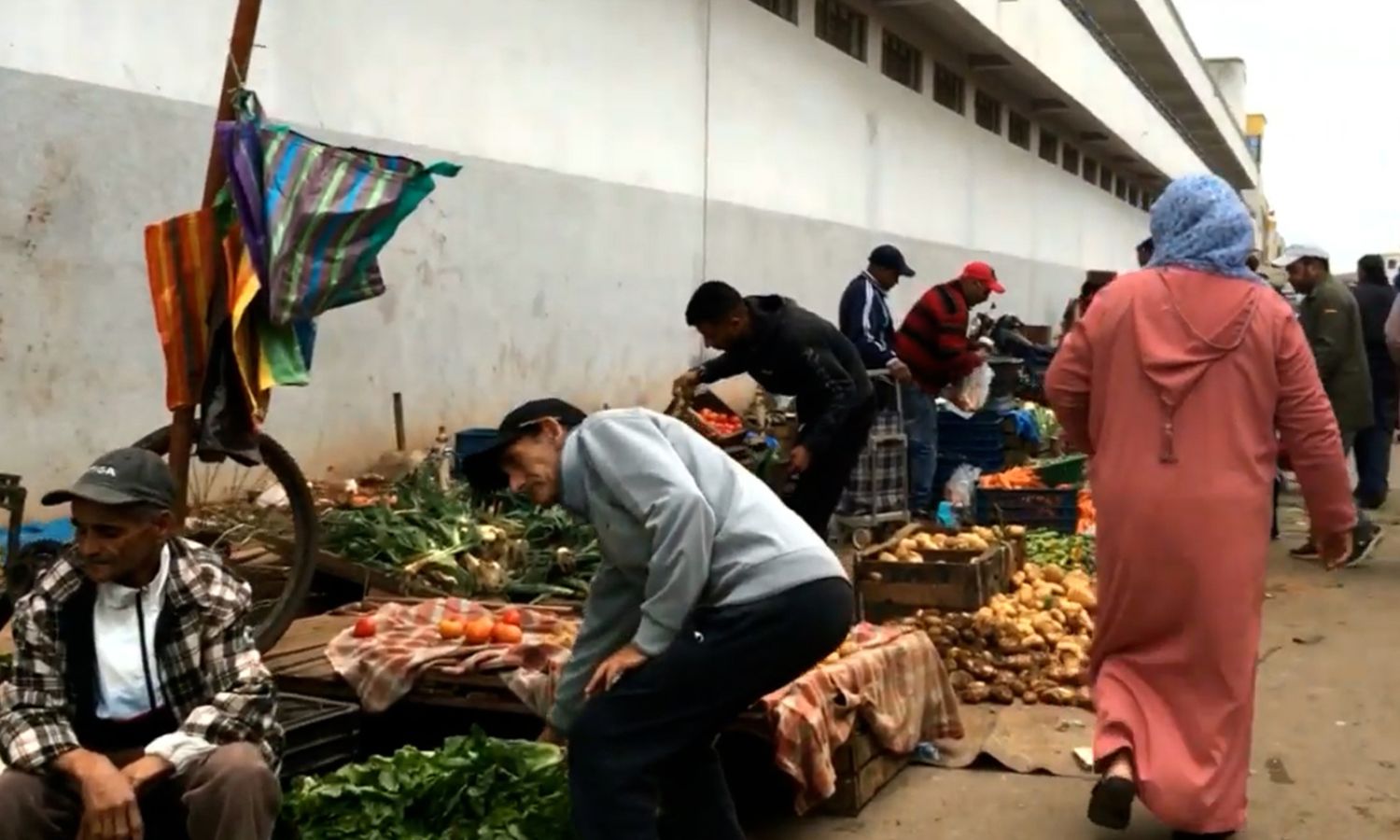
Quneitra: Residents ignore shops, tend to stalls for affordable prices

Enab Baladi – Zain al-Jolani
Recently, the sidewalks of Khan Arnabeh, the town that is considered the commercial center of the Quneitra governorate in southern Syria, witnessed a wide spread of stalls selling vegetables and clothes in light of economic difficulties, including the high prices of food and the high cost of living.
The stalls are spread in the streets, squares, and sidewalks and contain vegetables, fruits, clothes, and shoes, to turn into something like a commercial market that people go to to buy their needs, given the low price of the products compared to the shops.
Sabha Ahmed, 60, told Enab Baladi that she travels an estimated distance of 70 kilometers per day to sell some vegetables that she grows on land next to her house in the village of Ghadir al-Bustan in the western countryside of Quneitra.
Ahmed sells mint, parsley, lettuce, spinach, radishes, and green onions, which she picks daily and prepares to be sold on stalls in Khan Arnabeh in an attempt to provide for her children and grandchildren.
Selling on stalls is one of the solutions in the face of difficult economic conditions and the high prices of shop rents in the region.
Rents in Khan Arnabeh range between 50,000 SYP and 300,000 SYP, according to the geographical location, area, and other characteristics of the rented shop.
($1=8400 SYP) according to the S-P Today website that covers the trading rate of the Syrian pound to the dollar
Bassam al-Khalid, 45, of Quneitra, told Enab Baladi that he now prefers to buy his daily needs of vegetables and fruits, and non-daily needs of clothes, shoes, and others, from the stalls.
Al-Khaled explained that the low prices of stalls compared to other shops prompt him to prefer them, in addition to the fact that vegetables and fruits are usually fresh, unlike grocery stores and vegetable shops.
Municipality penalizes stall owners
Despite the widespread use of stalls, as one of the solutions that Quneitra residents resort to to overcome economic problems, the municipality imposes fines on their owners.
Al-Ahmed told Enab Baladi that she is exposed to some problems from the traffic police or the municipality police, especially when there are traffic crises or citizens gathering to buy goods or ask about their prices.
One of the solutions that stall sellers follow is to pay some sums to make things easier and not force them to remove stalls from the sidewalks.
The municipality usually resorts to fining stall owners or confiscating their goods.
Abu Talib, a member of the municipal police (who preferred not to reveal his full name for security reasons), told Enab Baladi that the proliferation of stalls is a new phenomenon that did not previously exist in the town of Khan Arnabeh.
Regarding how the municipality deals with it, Abu Talib said that one of the municipality’s duties is to prevent stalls from occupying the sidewalk, especially as they cause a traffic jam between pedestrians, cars, and stall owners, which prompts the municipality to issue fines.
He added that he is an employee and it is his duty to prevent stalls from occupying the sidewalks and roads, but the poor living conditions of citizens and their need for work prompt him to allow them to work without problems.
In order to solve this problem, Abu Talib told Enab Baladi that the members of the Quneitra City Council allocated a monthly amount that the owners of stalls pay to the municipality as a form of tax for the use of sidewalks and public streets in return for continuing to sell products.
The average wage in Quneitra is 90,000 pounds, and it reaches 200,000 Syrian pounds, which are small amounts compared to inflation and high prices in the areas controlled by the Syrian regime, including Quneitra governorate.
Syria ranked 18th out of 117 countries in the worker poverty index, according to the latest International Labor Organization classification for the year 2022.
While labor productivity in Syria was ranked 149th out of 185 countries, which indicates poor productivity in the country, the United Nations classified more than 90% of the population of Syria below the poverty line.
On the other hand, the head of the Federation of Trade Unions considered, in statements to the local radio station Al-Madina FM, on May 1, that the minimum wage in Syria is not enough for one day and that the wage system needs radical amendments.
if you think the article contain wrong information or you have additional details Send Correction
النسخة العربية من المقال
-
Follow us :
Most viewed
- Syrians pack their bags in Turkey
- After European call to engage with Syrian regime, Italy appoints ambassador to Damascus
- Syrian pressures prevent Omar al-Aroub from attending Paris Olympics
- Turkey and Russia discuss resuming patrols on M4 highway
- After Baraa Qaterji’s elimination, Is Syrian regime replacing its economic façade?

















 A
A
A
A
A
A



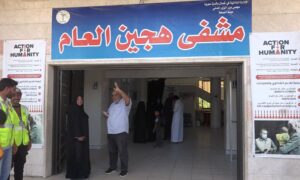
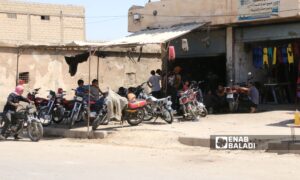
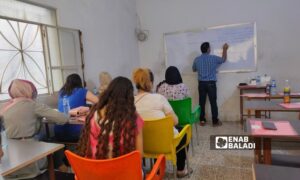
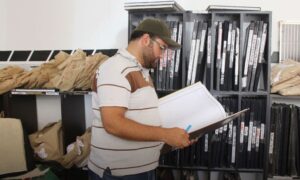

 More Society
More Society